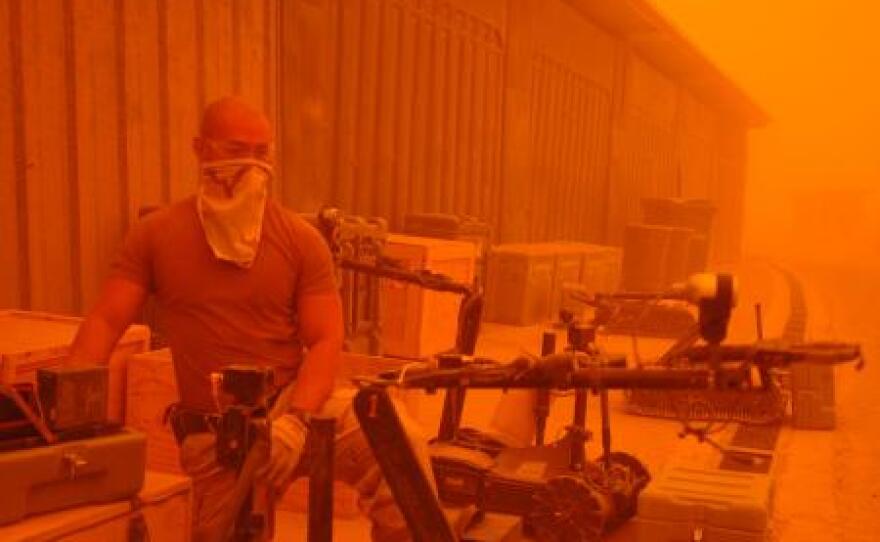New research shows an unique type of titanium-filled dust, found at Camp Victory in Iraq, has been discovered in the lungs of several Iraq War veterans suffering from respiratory problems.
Dr. Anthony Szema of Stony Brook School of Medicine told USA Today that the sick veterans originally came into his VA-run allergy clinic because they were suffering from shortness of breath:
"We biopsied several patients and found titanium in every single one of them. It matched dust that we have collected from Camp Victory...
"They've inhaled metal. It's not a little; it's a lot."
It may have been created by burn pits used to eliminate everything from Styrofoam to vehicles to computers to unexploded ordnance in both Iraq and Afghanistan. At Balad Air Base in Iraq, workers burned 240 tons of trash a day in an open pit a mile from servicemembers' sleeping quarters.
As Home Post previously reported, a study conducted by the Institute of Medicine suggested burn pits on military bases in Iraq were polluting the air that service members were breathing in.
"Using air samples the military took at Joint Base Balad in Iraq — two in 2007 and one in 2009 — the researchers found particulate matter levels higher than the most congested cities in the world, including Beijing."
More recent research on burn pits conducted in Afghanistan found a stronger link between the pits and respiratory illness. In July 2013, the Special Inspector General for Afghanistan Reconstruction (SIGAR) wrote a letter to U.S. military officials in Afghanistan that read, in part:
"The toxic smoke from burning solid waste each day increases the long-term health risks for camp personnel, including reduced lung function and exacerbated chronic illnesses, ranging from asthma to chronic obstructive pulmonary disease."
Szema is presenting his research Monday at the 3rd International Scientific Symposium on Lung Health after Deployment to Iraq and Afghanistan, held at Stony Brook.






